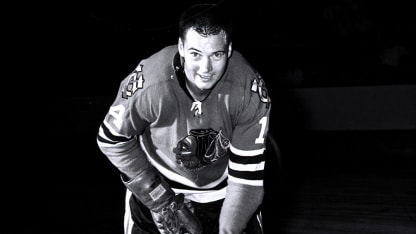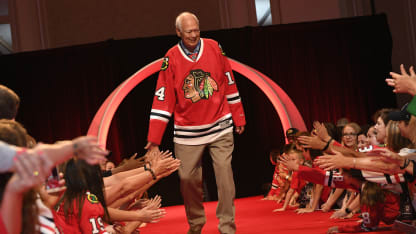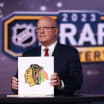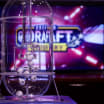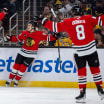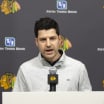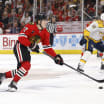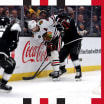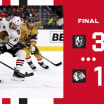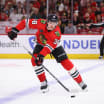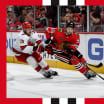Ab McDonald scored one of the most important goals in the history of the Blackhawks, and, appropriately, it was more about the art of work than a work of art.
On April 16, 1961, the Blackhawks led the Stanley Cup Final, three games to two, and were tied with the Red Wings, 1-1, in Game 6 at Detroit's Olympia. Reggie Fleming had given the visitors a mighty boost with a shorthanded goal. Then, late in the second period, Bobby Hull, wearing No. 16, burst toward the Red Wings' net. Neither he nor goalie Hank Bassen gained control of the puck, so McDonald, a burly winger, entered a crowd and nudged home a tiny tap-in at 18:49 to afford the Blackhawks a 2-1 advantage. Hull assisted, along with Stan Mikita, and the Blackhawks never looked back.
THE VERDICT: Ab McDonald was prophetic ahead of 1961 Stanley Cup
McDonald, who passed away early in September at the age of 82, foresaw a Cup win in 1961 and did his part with an important goal
